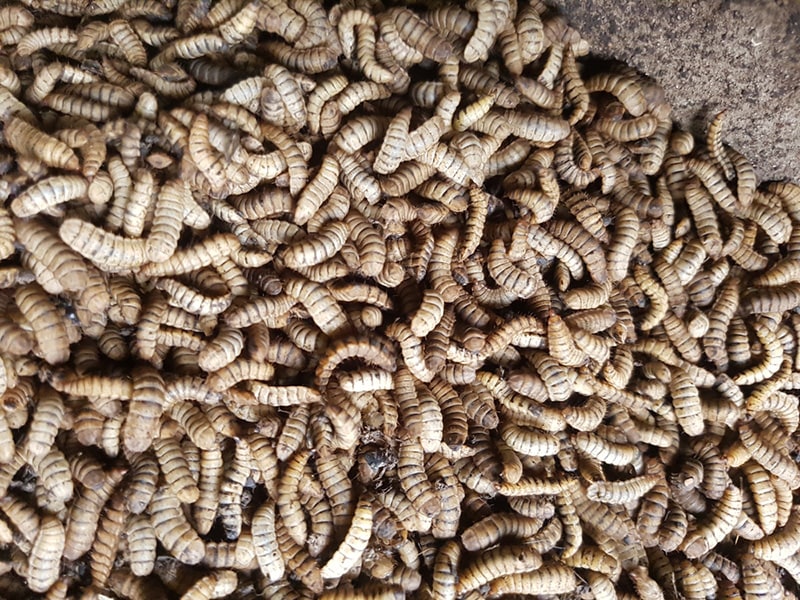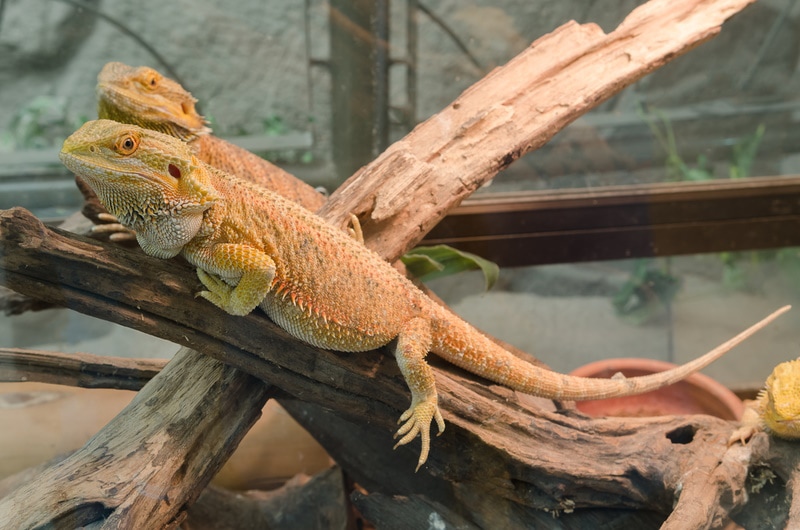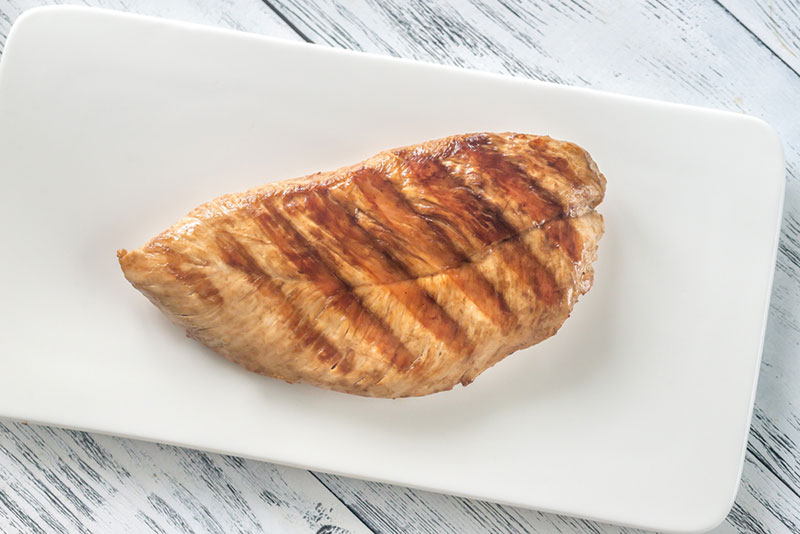Can Bearded Dragons Eat Mushrooms? Vet-Approved Facts & FAQ
Updated on
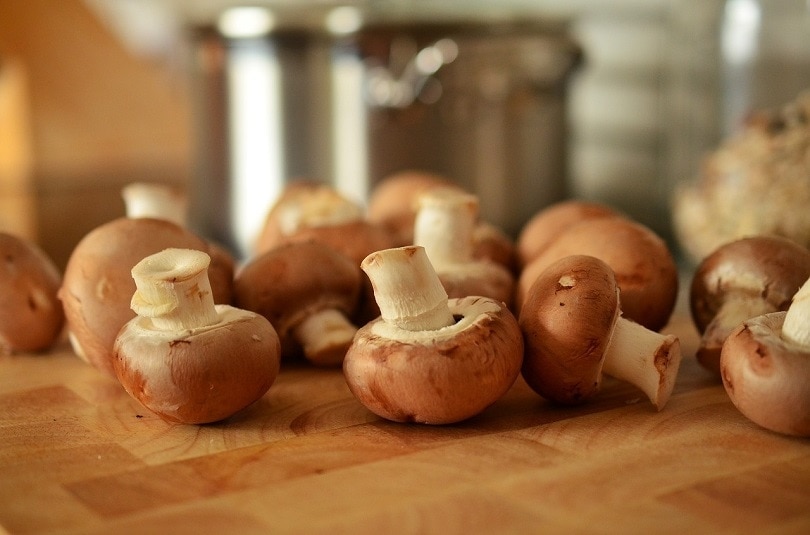
We all enjoy sharing our life experiences with our beloved pets. But what happens when that shared experience includes food, particularly mushrooms? If you’re contemplating sharing a bite of your mushroom risotto with your bearded dragon, pause right there. Your bearded dragon must sit out this culinary experience. Simply put, mushrooms are not suited for bearded dragons. Let’s explore why.
Why Your Bearded Dragon Can Not Eat Mushrooms
Unraveling the dietary needs of bearded dragons is no less complicated than solving a perplexing puzzle. Each dietary component plays a unique role, and maintaining a balance is crucial for your bearded dragon’s well-being. In this complex dietary matrix, mushrooms find no place.
Bearded dragons have very particular requirements regarding the calcium and phosphorus balance in their diets. An excess or shortage of either can disrupt this delicate balance and lead to health issues.
Let’s look at the nutritional content of mushrooms, as stated by the USDA: the average mushroom provides approximately 15 calories, 2 grams of carbohydrates, 4 milligrams of sodium, 2 grams of protein, 25% of daily vitamin D needs, 5% of daily potassium needs, and a whopping 82.6 milligrams of phosphorus.
These figures show that mushrooms bring a surge of phosphorus to the table. The overabundance of phosphorus becomes a problem as it interferes with the absorption of calcium, a nutrient vital for a bearded dragon’s health. This factor, combined with the lack of other valuable benefits mushrooms could offer, renders them an unsuitable choice for your bearded dragon.
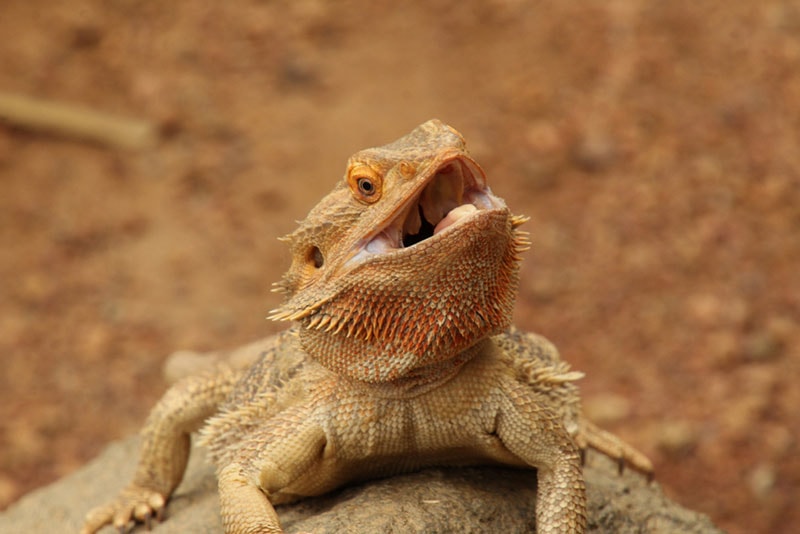
Oxalates and Oxalic Acid: The Hidden Hazards
Even within the scope of a bearded dragon’s regular diet, oxalates present a considerable challenge. In tiny quantities, they are harmless. However, when the intake exceeds the safe limit, they can disrupt the bearded dragon’s normal physiological functions. Oxalates have the unique property of binding with calcium in the bearded dragon’s system. This binding inhibits calcium absorption, an undesirable outcome as calcium is crucial for bone growth, skin health, structural stability, and appropriate bone density.
Long-term calcium blockage can lead to severe health conditions, such as metabolic bone disease, which manifests as brittle, stiff bones in your bearded dragon. In extreme cases, this could even progress to paralysis. Considering that mushrooms contain oxalates and oxalic acid that further impede calcium absorption, they pose a clear and present danger to your bearded dragon’s health and well-being.
Mushroom Poisoning: Signs and Symptoms
Suppose your bearded dragon does manage to sneak in a mushroom when you’re not looking—not all is lost. However, it’s vital to be vigilant and familiarize yourself with the possible signs they may exhibit. This is especially true in the first few hours post-consumption when adverse reactions are most likely to occur.
Your bearded dragon might initially display signs such as vomiting or diarrhea, or appear generally unwell, with changes in their typical behavior. A noticeable increase in lethargy is definitely a cause for concern.
Such signs should not be taken lightly. Swift and immediate professional intervention can make a huge difference in your bearded dragon’s recovery, which is why prompt veterinary care is paramount.

Accidental Mushroom Ingestion: What to Do?
We understand that it’s a panic-inducing moment when you discover your bearded dragon has mistakenly consumed a mushroom. Your immediate impulse might be to panic, but try to keep a level head. The steps you take in the immediate aftermath are crucial.
Monitor your bearded dragon closely, taking note of any behavioral or physical changes. While the symptoms may be mild or even non-existent initially, the situation could escalate rapidly. Therefore, it’s wise to err on the side of caution. Be prepared to act swiftly if your pet starts to display symptoms of discomfort or distress.
If your bearded dragon has eaten more than just a tiny nibble of a mushroom, you should act preemptively. Don’t wait for signs to appear. Contacting an exotic vet should be your first move. They can provide guidance based on their professional expertise and may advise bringing your bearded dragon in for a check-up. The key takeaway here is not to downplay the situation. Reach out, act quickly, and ensure your bearded dragon gets the necessary care promptly.
Conclusion
It’s essential to reiterate the clear and simple fact that mushrooms of any sort, be it shiitake, portobello, or white button, and prepared in any manner, cooked or raw, have no place in your bearded dragon’s diet. The high phosphorus content, along with oxalates and oxalic acid found in mushrooms, obstructs calcium absorption, a cornerstone of your bearded dragon’s health.
So, the next time you’re in the kitchen, cooking up a mushroom storm, and you find your bearded dragon eyeing you with curiosity, treat them instead with a crunchy insect or a fresh piece of fruit. This way, you both get to enjoy mealtime, each in your own safe and delightful ways.
Always prioritize your pet’s health over shared culinary experiences. And remember, when you look out for their well-being, you gift them with a life filled with vitality and longevity. As bearded dragon enthusiasts, isn’t that what we all desire, after all? To see our scaly pals thriving, healthy, and full of life. So, while you indulge in your mushroom delicacies, let your bearded dragon relish its own nutrient-rich, mushroom-free diet. After all, variety is the spice of life, and this goes for our diets as well as our beloved pets.
Featured Image Credit by congerdesign, Pixabay


